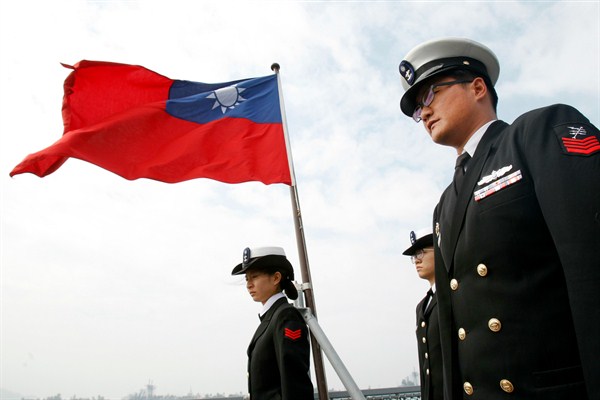This week, a Chinese airline, China Eastern, canceled 106 round-trip flights to Taiwan around the busy Lunar New Year, citing a refusal by Taiwanese authorities to approve the flights. The spat is the latest in an escalating row between Beijing and Taipei at a time when the Trump administration’s policies in East Asia are raising concerns among some U.S. allies in the region. In an email interview, Joel Atkinson, an associate professor of East Asian international relations at the Hankuk University of Foreign Studies in Seoul, South Korea, discusses what’s behind the heightened tensions, how Washington fits in, and what cyclical tensions mean for China and Taiwan in the long run.
WPR: What is driving the recent escalation in tension between China and Taiwan?
Joel Atkinson: The reason for the tension is very clearly one-sided. Beijing is ratcheting up the pressure, trying to push Taiwan into making concessions ultimately aimed at absorbing Taiwan into the People’s Republic of China. The recent specific issue is Beijing’s unilateral opening of commercial airline routes close to Taiwan-controlled airspace. This raises security concerns in Taiwan and continues a worrisome trend of Beijing taking unilateral steps that affect and potentially threaten Taiwan without consultation. Other, similar steps include circling Taiwan with bombers and other military aircraft, and forcing international companies to change the nomenclature they use regarding Taiwan. Taipei has responded by restricting some Chinese commercial flights to Taiwan. While all of this pressure causes some understandable anxiety in Taiwan, Taipei’s response has been very restrained and mild, especially given that the tension is so asymmetrical.

